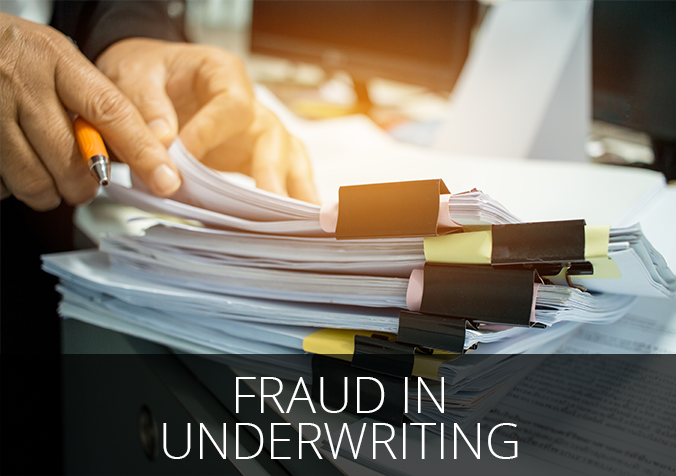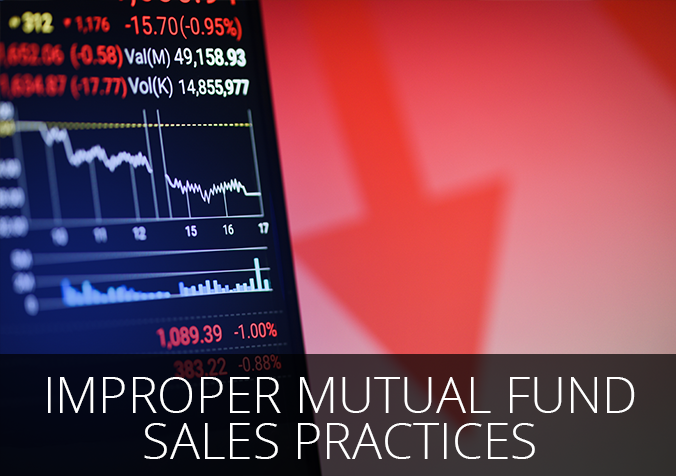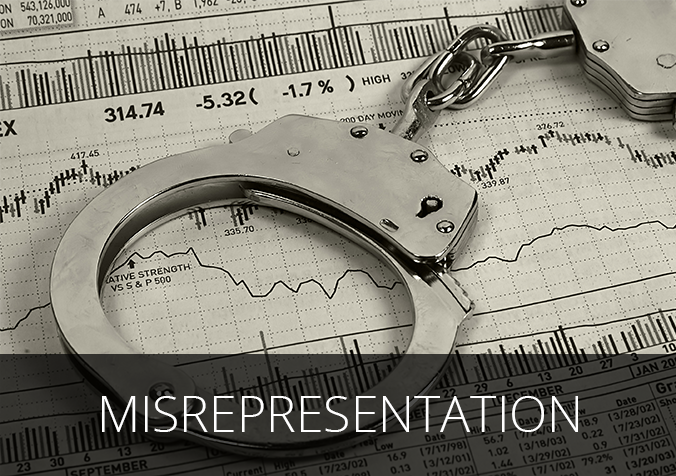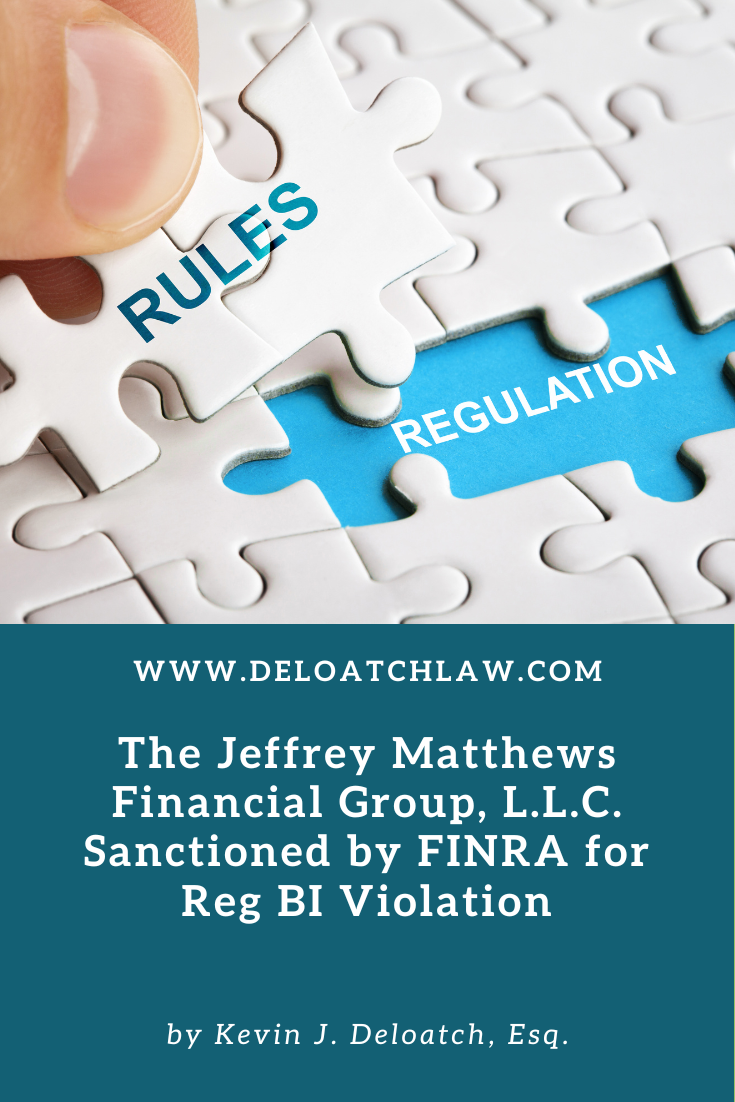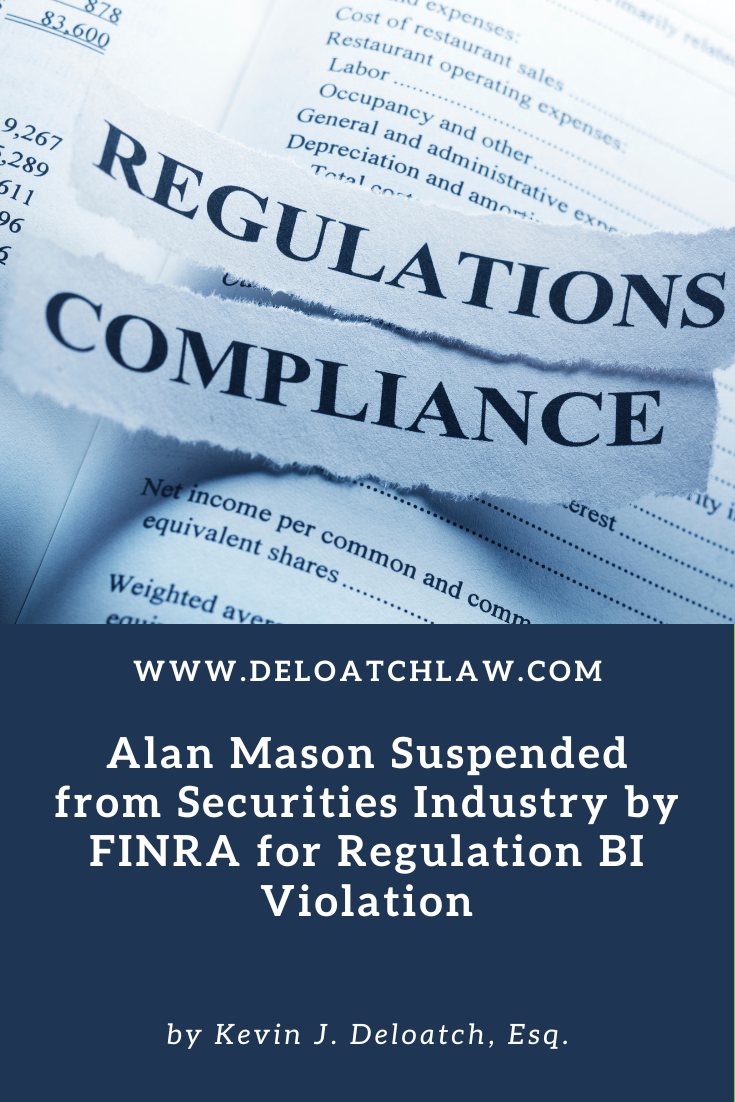SECURITIES LAW
The Law Office of Kevin J. Deloatch, Esq. has extensive experience in the financial services industry.
Whether representing investors or securities professionals accused of wrongdoing, Mr. Deloatch draws on the experience he amassed over 30 years in the financial services and securities industry to provide his clients with comprehensive representation.
Firms and Associated Persons
The Law Office of Kevin J. Deloatch, Esq. represents brokerage firms and associated persons in arbitrations before FINRA involving allegations of misrepresentation, fraud, unsuitability, churning, conflicts of interests, selling away, improper mutual fund sales practices, and fraud in underwriting.
Kevin Deloatch also represent firms and associated persons in connection with regulatory exams, inquiries and disciplinary proceedings before the Securities and Exchange Commission, the Financial Industry Regulatory Authority (“FINRA”), state regulators, and state attorneys general.
Investors
Kevin Deloatch has seen first-hand how the major financial abuses and scandals that fill the news headlines pull many individual investors into financial ruin.
We are dedicated to providing comprehensive representation for the individual investor that has been victimized by such broker abuses. Our office has extensive experience in dealing with the following causes of action:
It is illegal for a broker-dealer or registered individual to use any measure to defraud, make false statements, omit relevant information that would deceive another person in relation to conducting transactions involving stock and other securities.
Securities fraud encompasses a wide spectrum of activity. Generally, it is any deceptive practice for the purpose of inducing an investor to act or refrain from acting with regard to a security or investment. Additionally, it also includes actions such as embezzlement, Ponzi schemes and insider trading just to name a few.
Registered securities professionals and broker-dealers have an obligation to only recommend securities to an investor that are appropriate and in line with that specific investor’s financial profile. Specifically, FINRA Rule 2111 requires that a firm or associated person have a reasonable basis to believe a recommended transaction or investment strategy involving a security or securities is suitable for the customer.
The determination of what is suitable for a specific investor is based on the information the registered individual and/or broker-dealer obtained from the investor through reasonable diligence. Broker-dealers are obligated to make a reasonable inquiry to determine the investor’s: age, income, net-worth, investment objectives and risk tolerance.
Churning is a term applied to the practice of a broker conducting excessive trading in a client’s account mainly to generate commissions. Churning is an unethical and illegal practice that violates SEC rules (15c1-7) and securities laws. While there is no quantitative measure for churning, frequent buying and selling of securities that does little to meet the client’s investment objectives may be evidence of churning.
Conflicts of interests tend to be created in the investor/broker-dealer relationship at the retail level when a registered representative and/or broker-dealer receives a specific benefit for recommending particular securities. Such benefit can include proprietary products, payments from third parties and compensation arrangements.
Broker-dealers are obligated to disclose all material facts relating to such conflicts of interest associated with the recommendation.
Improper mutual fund sales practices comes in many forms. It can result when a broker recommends a mutual fund with an investment objective that differs from the investment objective of the investor. It can also occur when a broker recommends the sale of a mutual fund that an investor holds to facilitate the purchase of a different mutual fund with the same investment objective.
Private placements are almost the opposite of an initial public offering (IPO). Securities that are sold pursuant to an IPO are registered with the SEC to be sold to the general public. Private placements, conversely are unregistered and have a much more narrowed scope. They are not sold to the general public. Rather they are sold to individuals that must meet specific requirements in addition to FINRA’s general suitability rule of 2111. As a result of such limitations, they tend to be less liquid and thus, riskier than securities that are registered and publicly traded.
Underwriting fraud involves schemes or attempts to mislead investors who purchase securities that are being offered to the public for the first time, whether though an IPO or a secondary offering. Such fraud may be perpetrated by investment bank(s)/broker-dealer(s) involved in underwriting or may be perpetrated by the companies going public. For example, companies and investment banks may mislead buyers about a company’s financial condition.
Issuers of new securities are obligated to provide certain material information regarding the company in the offering documents to potential investors. Moreover, it is illegal for issuers to knowingly provide misleading information about the company.
Similarly, it is illegal for a broker-dealer or registered individual to use any measure to defraud, make false statements or omit relevant information that would deceive an investor in relation to conducting transactions involving stock and other securities. Moreover, broker-dealers and registered representatives are obligated to disclose all material facts relating to any possible conflicts of interest associated with the recommendation.
The securities industry has specific rules governing securities transactions made by a broker for a customer. Brokers need prior authorization from a client before placing a securities transaction for a client. At the retail level, a broker cannot use discretion without prior written authorization from the client and the account/client being accepted by the member firm as a discretionary account.
However, there are exceptions. One such exception is the firm closing out positions to satisfy a margin call in the customer’s account.
Negligence occurs when a brokerage firm and/or its representatives fail to act in a reasonable and prudent manner. This typically happens when the broker or member firm fails to adhere to the standards of care established by the securities industry promulgated through FINRA rules and regulations. Negligence can stem from an intentional act (i.e. selling or purchasing the wrong securities) or it can stem from an omission or failure to act (i.e. failing to place a securities order).
Concentration occurs when an investment portfolio is not adequately diversified.
This typically occurs when all or the majority of a customer’s portfolio or investible assets are invested in one security or the securities of a single industry. This subjects the portfolio to risks associated with that specific security/company or industry.
Diversification is the primary tool for managing investment risks. Financial industry standards and academic studies consider any portion of an investment portfolio that exceeds ten percent of an account’s asset as being concentrated. Losses that result from over concentration may give rise to a cause of action against broker, brokerage firm or both.
FINRA rules require member firms to “establish and maintain a system of supervisory procedures (WSPs) to supervise the activities of its associated persons and the types of businesses in which it engages in.” This in short, creates a duty for a member firm and its designated supervisors to properly supervise all the activities associated with the handling of customer accounts. This necessarily includes the interaction of the broker with the client and the proper handling of the customer account.
Failure to adhere to the supervisory rules can give rise to a cause of action if a customer sustains losses from such failure to supervise.
Need Assistance?
Need more assistance? Try checking the links below for additional investor resources:
535 Fifth Avenue, 4th Floor
New York, NY 10017
(646) 792-2156 Primary Phone
(212) 898-1215 Fax
kdeloatch@deloatchlaw.com



